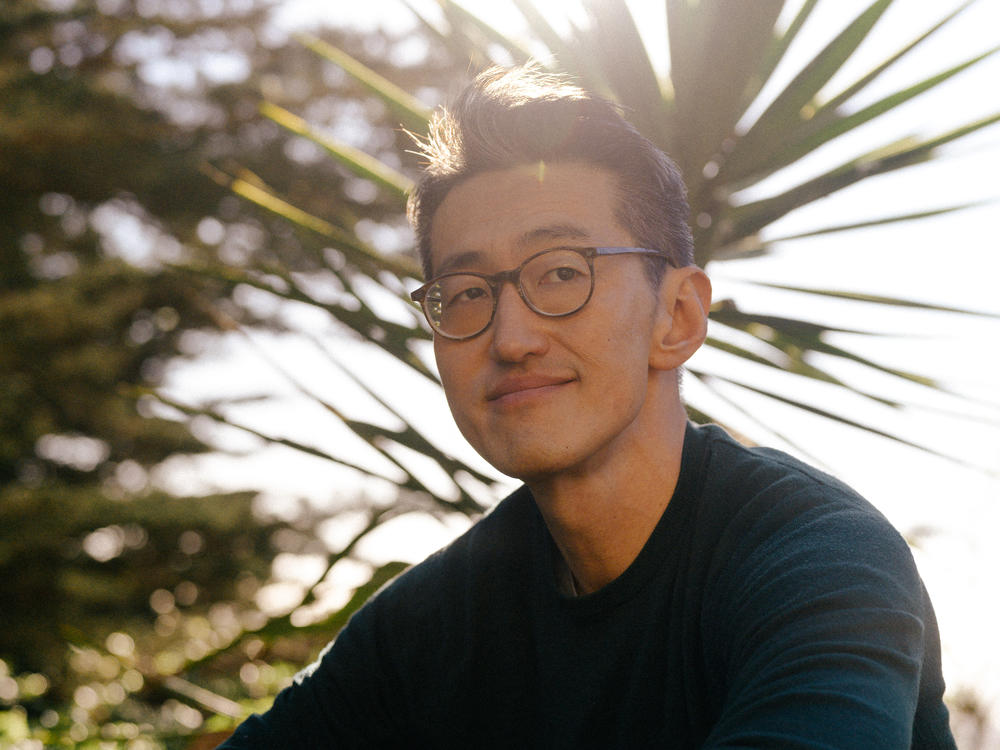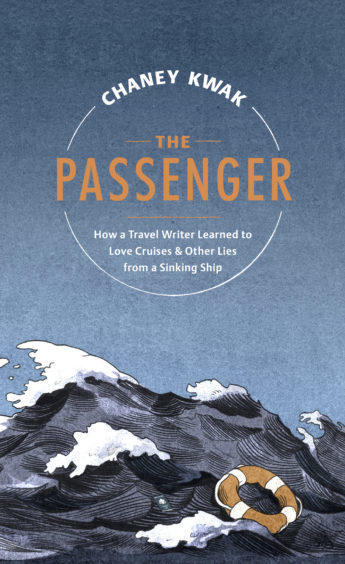Section Branding
Header Content
Author Chaney Kwak Turned A Cruise Ship Ordeal Into A Metaphor — And Memoir
Primary Content
In March 2019, writer Chaney Kwak was aboard the Viking Sky cruise ship off the Norwegian coast, on assignment to write about the Northern Lights.
But then the ship's four engines shut down in violent, stormy weather. Passengers were stranded on the boat for 27 hours before being rescued by helicopter or tugboat. What Kwak went through though changed the way he lives and sparked his first book: The Passenger: How a Travel Writer Learned to Love Cruises & Other Lies from a Sinking Ship.
"It became a book because of the pandemic," he tells NPR. "We were all locked down and I realized that the experience that I had gone through on the cruise ship was a good parallel to what we were all collectively experiencing, which is to be confined in a space with no certainty, being really scared and also reexamining our lives."
Interview Highlights
Tell me about the moment when you realized that something had gone terribly wrong.
We were in the middle of a storm, and we couldn't dock. And all of a sudden things started shifting literally. Cruises are built to withstand any kind of weather, so when you see a ceiling panel drop or furniture sliding around or a baby grand piano flip, then you know you're in kind of an extraordinary situation. But the scariest part was when the power went out and it became really quiet. That was the creepiest thing ever — where we were listing left and right, unsure if we were going to tip over or not. People are screaming, things are breaking, and then for that brief second when the power went out and the AC stopped working, there was this brief period of utter silence. And I'll never forget that.
As the book very nicely illustrates, there's one part of your brain that is thinking: I'm in a lot of trouble here. This could go very badly. And then there's another part of your brain that is doing the thing where your life flashes before your eyes. And you're thinking about two big things: the relationship that you've been in for a very long time and also your career and how neither one of those things is really going very well at that moment. Tell me what you were thinking about your relationship.
When I say "a sinking ship" in the title, I'm not actually referring to the cruise ship. There are many kinds of sinking ships in the book, one of which, I would say, is print media. I spent a lot of years working as a freelancer for magazines and newspapers, and things weren't going so well for the industry. But at the same time I was so burnt out and cynical, too. But the biggest sinking ship was probably my personal life. I was drifting without any kind of direction, without actually an idea of how to put myself back on course. I'd been with the same person for 16 years, someone that I loved, and still do. But you have this feeling where you can't do anything to correct the course so you stay on board even though you know you're working without a working engine and drifting deeper and deeper into the storm.
You came back to San Francisco and you ended your relationship. And you kept writing – because here we are with the book. I'm wondering how you feel. On the cruise you were in a pretty dark state of mind. How are you feeling these days?
It became a book because of the pandemic. We were all locked down and I realized that the experience that I had gone through on the cruise ship was a good parallel to what we were all collectively experiencing, which is to be confined in a space with no certainty, being really scared and also reexamining our lives. So after I came back to San Francisco I made gradual changes to my life, and I don't want to give away too much — it is a short book — but in the end I was able to jump ship — the sinking ship — and not wait for a rescue line from above.
Copyright 2021 NPR. To see more, visit https://www.npr.org.


